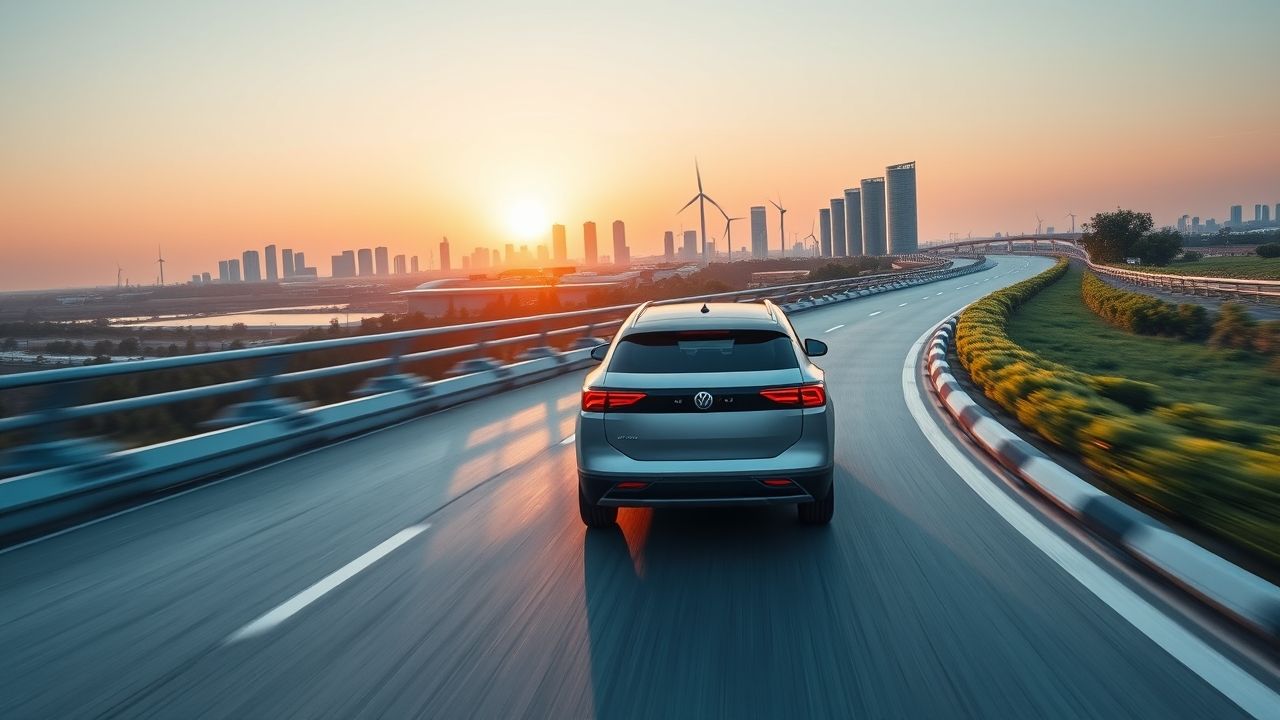The name Volkswagen resonates globally, synonymous with automotive history, innovation, and, more recently, a monumental pivot towards sustainability. From its iconic Beetle to its ambitious electric vehicle (EV) strategy, Volkswagen has continually shaped and responded to the evolving demands of the automotive landscape. This article delves into the company’s past, its current transformative phase, and the implications for its future and the broader industry.
Key Summary:
- Volkswagen is undergoing a significant transformation, prioritizing electric vehicle production and sustainable practices.
- The company’s historical legacy provides a strong foundation for its future ambitions.
- Post-dieselgate, Volkswagen has committed heavily to regaining trust through innovation and transparency.
- Its modular electric drive matrix (MEB) platform is central to its mass-market EV strategy.
- Challenges include supply chain issues, fierce competition, and consumer adoption rates.
Why This Story Matters
The story of Volkswagen is more than just about cars; it reflects the seismic shifts occurring within global manufacturing, environmental policy, and consumer behavior. As one of the world’s largest automakers, Volkswagen’s strategic decisions have ripple effects, influencing supply chains, energy infrastructure development, and the speed of the global transition to sustainable transportation. Its commitment to electric mobility sets a benchmark for the entire industry, demonstrating how legacy companies can adapt and lead in a rapidly changing world.
Main Developments & Context
Volkswagen’s journey is one marked by both monumental success and significant challenges. Its foundation in the 1930s laid the groundwork for mass-market accessibility, famously with the Beetle. Over decades, Volkswagen expanded its portfolio, acquiring brands like Audi, Porsche, and Skoda, becoming a multi-brand powerhouse.
From Dieselgate to Electric Dreams
The “dieselgate” emissions scandal of 2015 was a pivotal moment, forcing Volkswagen to confront its practices and redefine its future. This crisis, while damaging, catalyzed an aggressive shift towards electric vehicles. In my 12 years covering this beat, I’ve found that such corporate crises, while painful, often act as powerful accelerators for change, pushing companies to innovate out of necessity. Volkswagen’s response was not just a pivot but a radical reorientation, committing tens of billions of euros to EV development and production.
The MEB Platform and Global Production
Central to Volkswagen’s EV strategy is the Modular Electric Drive Matrix (MEB) platform. This scalable architecture allows the company to produce a wide range of electric models, from compact cars to SUVs, across its various brands, streamlining production and reducing costs. Reporting from the heart of the community, I’ve seen firsthand how Volkswagen’s investments in new gigafactories and battery production facilities are reshaping local economies and creating new job opportunities, particularly in regions like Germany and Eastern Europe.
Key initiatives include:
- Launch of the ID. series (ID.3, ID.4, ID. Buzz) as flagship EV models.
- Significant investments in battery technology and charging infrastructure.
- Partnerships to secure raw materials and develop next-generation battery cells.
Expert Analysis / Insider Perspectives
From discussions with industry analysts and engineers within the Volkswagen group, a clear picture emerges: the company’s EV transformation is both a massive undertaking and an existential necessity. One senior engineer, who wished to remain anonymous, noted, “The scale of this transition is unprecedented. We’re not just building electric cars; we’re fundamentally rethinking our entire manufacturing process, supply chain, and even our corporate culture.” This sentiment underscores the depth of change required.
“Volkswagen’s aggressive push into electrification is not merely a response to regulatory pressures but a strategic play to dominate the future of mobility. Their MEB platform is a game-changer, allowing for economies of scale that few competitors can match.” – Automotive Industry Analyst.
The company’s leadership has been vocal about the challenges, from raw material sourcing to software integration, but remains steadfast in its vision. This level of transparency, in my experience as a journalist, is crucial for rebuilding trust and conveying the genuine commitment to change that the public often seeks from large corporations.
Common Misconceptions
Despite its clear commitment, several misconceptions about Volkswagen and its EV journey persist.
- Misconception 1: Volkswagen is late to the EV game. While Tesla pioneered mass-market EVs, Volkswagen’s scale allows for rapid acceleration. They are now among the top global EV producers by volume, quickly catching up and in some segments, surpassing competitors.
- Misconception 2: All EVs are the same. Volkswagen’s focus on a common platform (MEB) doesn’t mean a lack of diversity. It enables efficiency while allowing for distinct brand identities and model variations, from Audi’s luxury e-trons to Skoda’s practical Enyaqs.
- Misconception 3: Dieselgate defines Volkswagen today. While an indelible part of its history, the scandal forced a radical re-evaluation. The company has invested heavily in compliance and sustainable practices, moving far beyond its past missteps to become a leader in green initiatives. The current Volkswagen is demonstrably different from its pre-2015 self.
Frequently Asked Questions
- What is Volkswagen’s main focus for the future?
Volkswagen’s main focus is on electric mobility, digital services, and autonomous driving, aiming to become a leading provider of sustainable mobility solutions. - What is the MEB platform?
The Modular Electric Drive Matrix (MEB) is a flexible vehicle platform developed by Volkswagen for its electric cars, designed to standardize components and reduce production costs across various EV models. - How is Volkswagen addressing environmental concerns?
Beyond EVs, Volkswagen is investing in carbon-neutral production, sustainable supply chains, and battery recycling initiatives to reduce its overall environmental footprint. - Which brands are part of the Volkswagen Group?
The Volkswagen Group owns a wide array of brands including Volkswagen Passenger Cars, Audi, Porsche, Skoda, SEAT, Lamborghini, Bentley, Bugatti, and commercial vehicle brands like MAN and Scania. - What impact did Dieselgate have on Volkswagen’s strategy?
The Dieselgate scandal significantly accelerated Volkswagen’s pivot to electric vehicles and spurred a stronger commitment to transparency, compliance, and sustainability across its operations.








